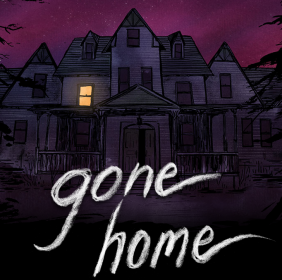Gone Home

“GoneHomeArt” Forbes Magazine
http://b-i.forbesimg.com/danielnyegriffiths/files/2013/08/gonehomeart.png
To me, the game Gone Home first presented itself as a linear horror game. From the very beginning, the notes and exploration created an unsettling uncertainty in which I did not how to process. As I played the game, I slowly realized that this game did not follow a linear plot, and that the exploration served as the core essence of the game itself. In an eerie fashion, the openness of the game added to its melancholy feel that continued to make me uncomfortable. I half expected the damp overtone of the environment to fade out as the game progressed. The unsettling aura of the game positively reinforced the message. By exposing the audience to such an intensive immersion, the developers of the game were able to drive forth powerful messages and problems in an effective manner.
As someone who grew up nearby Portland, Oregon, this game struck a familiar chord. It was interesting to see how controversial discussions such as affairs, homosexuality, and intrafamilial tensions were treated back then. The Portland that I know today has evolved so much over time. The entire microcosm presented in the game seemed so strikingly different. It was an interesting experience, as I was able to compare the Portland of today to the Portland of back then
View of Portland via Shuttlestock
